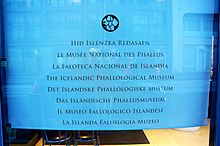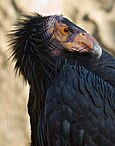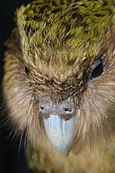主题:动物/精选条目
Instructions
[编辑]The layout design for these subpages is at Portal:动物/精选条目/排版.
- Add a new Selected article to the next available subpage.
- The list should only contain articles that have been given a quality rating of Good Articles.
- The "blurb" for all Selected articles should be approximately 8 lines, for appropriate formatting in the portal main page.
- Update "max=" to new total for its {{Random portal component}} on the main page.
Selected articles list
[编辑]卡尔·冯·林奈(瑞典语:Carl von Linné,1707年5月23日—1778年1月10日),过去曾译成林内,受封贵族前名为卡尔·林奈乌斯(Carl Linnaeus),由于瑞典学者阶层的姓常拉丁化,又作卡罗卢斯·林奈乌斯(拉丁语:Carolus Linnaeus),瑞典植物学家、动物学家和医生,瑞典科学院创始人之一并担任第一任主席。他奠定了现代生物学命名法二名法的基础,是现代生物分类学之父,也被认为是现代生态学之父之一。他的很多著作使用拉丁文撰写,他的名字在拉丁语中是Carolus Linnæus(在1761年之后为Carolus a Linné)。
1707年,林奈出生于瑞典南部斯莫兰的一个小乡村里。林奈在乌普萨拉大学接受了大部分的高等教育,并在1730年开始教授植物学。1735年至1738年之间,他居住在国外和做研究。他在荷兰出版了第一版的《自然系统》(Systema Naturae)。之后,他回到瑞典的乌普萨拉,担任了医学和植物学教授。在1740年代,他旅行遍及瑞典各地,搜集和分类各种植物和动物。在1750年代和1760年代,他继续搜集和分类各种动植物,并将成果出版了好几卷。当他逝世的时候,他已经是欧洲最受赞誉的科学家之一。
瑞士哲学家卢梭在给林奈的信中写到“告诉他我知道地球上没有人比他更伟大”。德国学者歌德写过:“除了莎士比亚和斯宾诺莎,再没有其他的先人对我的影响比林奈更强。” 除了这些赞誉,林奈还被称为“植物学王子”,“北方的博物志”,以及“第二个亚当”。
在植物学中,用L.来作为表明林奈的作者权的作者名缩写。在一些较老得出版物中,有时林奈的作者名缩写为“Linn.”。
- Carl Linnaeus ( 23 May 1707 – 10 January 1778) was a Swedish botanist, physician, and zoologist, who laid the foundations for the modern biological naming scheme of binomial nomenclature. He is known as the father of modern taxonomy, and is also considered one of the fathers of modern ecology. Linnaeus was born in the countryside of Småland, in southern Sweden. He received most of his higher education at Uppsala University, and began giving lectures in botany there in 1730. He lived abroad between 1735 and 1738, where he studied and also published a first edition of his Systema Naturae in the Netherlands. He then returned to Sweden, where he became professor of medicine and botany at Uppsala. In the 1740s, he was sent on several journeys through Sweden to find and classify plants and animals. In the 1750s and '60s, he continued to collect and classify animals, plants, and minerals, and published several volumes. At the time of his death, he was one of the most acclaimed scientists in Europe.
加州神鹫(学名:Gymnogyps californianus)属于美洲鹫科新大陆秃鹫家族,为北美洲大陆最大的鸟类。如今这种鹫只生活在科罗拉多大峡谷区域以及加利福尼亚州和下加利福尼亚州北部西海岸的群山中。牠是加州兀鹫属中唯一存活的物种。
加州神鹫是一种大型黑色的秃鹫,翅膀下面有白色的小块,头部秃毛,根据其情绪的不同,显露的皮肤颜色为微黄色到鲜红色。在所有北美洲的鸟类中其翼幅最宽,同时也是最重的鸟类之一。加州神鹫是食腐动物,吃大量的腐肉。牠是世界上寿命最长的鸟类之一,其寿命可达50年。
19世纪以来,由于非法狩猎、铅中毒和栖息地破坏,加州神鹫的数量急遽减少。最终,美国于1987年执行了一项自然保护运动计划,捕获了所有存活的野生加州神鹫,总计22只鸟被豢养在圣迭戈野生动物园和洛杉矶动物园。从1991年起,数量开始有所增长,加州神鹫又被重新放归山林。这项工程是美国迄今以来最昂贵的物种保护工程。加州神鹫是世界上最稀少的鸟类之一。到2008年12月,据统计只剩有327只存活的加州神鹫,其中半数以上为野生。[1]
加州神鹫对于很多加州印第安人的文化具有重要意义,作为一个重要角色出现在一些传统的美国原住民神话中。
The California condor (Gymnogyps californianus) is a New World vulture, the largest North American land bird. This condor became extinct in the wild in 1987 (all remaining wild individuals were captured), but the species has been reintroduced to northern Arizona and southern Utah (including the Grand Canyon area and Zion National Park), the coastal mountains of central and southern California, and northern Baja California. Although other fossil members are known, it is the only surviving member of the genus Gymnogyps. The species is listed as critically endangered by the IUCN.
The plumage is black with patches of white on the underside of the wings; the head is largely bald, with skin color ranging from gray on young birds to yellow and bright orange on breeding adults. Its huge 3.0米(9.8英尺) wingspan is the widest of any North American bird, and its weight of up to 12千克(26磅) nearly equals that of the trumpeter swan, the heaviest among native North American bird species. The condor is a scavenger and eats large amounts of carrion. It is one of the world's longest-living birds, with a lifespan of up to 60 years.[2]
Condor numbers dramatically declined in the 20th century due to poaching, lead poisoning, and habitat destruction.[3] A conservation plan was put in place by the United States government that led to the capture of all the remaining wild condors which was completed in 1987, with a total population of 27 individuals.[4] These surviving birds were bred at the San Diego Wild Animal Park and the Los Angeles Zoo. Numbers rose through captive breeding and, beginning in 1991, condors were reintroduced into the wild. The California condor is one of the world's rarest bird species: as of December 2015 there are 435 condors living wild or in captivity.[5]
The condor is a significant bird to many Californian Native American groups and plays an important role in several of their traditional myths.
多孔动物门(学名:Porifera)为原始的多细胞生物,也称海绵动物门(Spongiatia或Spongia),一般称为海绵。海绵没有神经、消化和循环系统,相反,它们大多依靠海水流过自己的身体来获得食物和氧气并消除废物,就像海底中的滤水器。
由于形状像植物,而且根植在海底中,所以海绵千百年来都被认为是植物,但后来发现它们几乎具备所有最基本的动物特征,所以到十九世纪中期才被归入动物界里头。但近期基于基因组资讯与系统发生学的更多证据,所以应否把它们保留在动物界还是独立出来自成一个界别的论点在生物学界仍在不断讨论中。
Sponges are animals of the phylum Porifera (meaning "pore bearer"). They are multicellular organisms that have bodies full of pores and channels allowing water to circulate through them, consisting of jelly-like mesohyl sandwiched between two thin layers of cells. Sponges have unspecialized cells that can transform into other types and that often migrate between the main cell layers and the mesohyl in the process. Sponges do not have nervous, digestive or circulatory systems. Instead, most rely on maintaining a constant water flow through their bodies to obtain food and oxygen and to remove wastes.
内肛动物门(学名:Entoprocta)是动物界的一个门。分类上曾一度把牠们与外肛动物门合称为苔藓动物门(Bryozoa)。后来发现内肛动物为假体腔动物,而外肛动物为真体腔动物,现行分类已将这两类动物独立成门。内肛动物大约有150多种,绝大多数体型不超过5mm。 内肛动物门,水生无脊椎动物,分布于全世界,主要见于海洋生境。有少数生活于淡水。内肛动物为单体或通过出芽方式形成相互交通的群体;其中,每个个体称为个员,高仅0.4~0.5毫米,有一条柄,可以互相结合,柄可附着在贝壳、海草或其他会产生水流的动物,如海绵、苔藓动物、水螅和环节动物上。身上有一个球状的头部(萼),其中包容一个U形的消化道以及神经、排泄和生殖系统。具纤毛的触手排成冠状,用以产生水流,将食物颗粒送入位于中央的口部。营群体生活的各类常将萼总抛弃,然后再生。营单体生活的种类可以生出子芽,子芽成熟后脱离母体。虽然内肛动物的幼体及其早期发育方式表明内肛动物可能与环节动物和与环节动物近缘的门有遥远的亲缘关系,但无证据表明内肛动物与任何门的动物为近缘。
Entoprocta is a phylum of mostly sessile aquatic animals, ranging from 0.1 to 7 millimetres (0.0039 to 0.28 in) long. Mature individuals are goblet-shaped, on relatively long stalks. They have a "crown" of solid tentacles whose cilia generate water currents that draw food particles towards the mouth, and both the mouth and anus lie inside the "crown". The superficially similar Bryozoa (Ectoprocta) have the anus outside a "crown" of hollow tentacles. Most families of entoprocts are colonial, and all but 2 of the 150 species are marine. A few solitary species can move slowly. Some species eject unfertilized ova into the water while others keep their ova in brood chambers until they hatch, and some of these species use placenta-like organs to nourish the developing eggs. After hatching, the larvae swim for a short time and then settle on a surface. There they metamorphose, and the larval gut generally rotates by up to 180°, so that the mouth and anus face upwards. Both colonial and solitary species also reproduce by cloning — solitary species grow clones in the space between the tentacles and then release them when developed, while colonial ones produce new members from the stalks or from corridor-like stolons. Some species of nudibranchs ("sea slugs") and turbellarian flatworms prey on entoprocts. A few entoproct species have been found living in close association with other animals. It is uncertain whether any are invasive species.
北极燕鸥(学名:Sterna paradisaea、arctic tern)是属于燕鸥科的一种海鸟。分布于北极及附近地区,并于北极、欧洲、亚洲和北美洲靠近北极的地方进行繁殖。北极燕鸥是候鸟,每年经历两个夏季,从其北部的繁殖区南迁至南极洲附近的海洋,之后再北迁回繁殖区(约24,000英里),这是已知的动物中迁徙路线最长的。
北极燕鸥体型中等,一般长33到39公分,翼展76到85公分。其羽毛主要呈灰色与白色,喙和两脚呈红色,前额呈白色,头顶和颈背呈黑色,腮帮子呈白色。其灰色翅膀为305毫米,肩羽带棕色。上面的冀背呈灰色,带白色羽缘,颈部呈纯白色,其带灰色羽瓣的叉状尾部亦然。其后面的耳覆羽呈黑色。
北极燕鸥只会照料和保护小部分的幼鸟。成体会长期养牠们的幼鸟,并帮助牠们飞往南方过冬。北极燕鸥寿命很长,大部分可活上20年。牠们主要吃鱼和水生的无脊椎动物。此物种数量很多,约为一百万个个体。
狐獴是一种小型昼行性动物,雄性平均重约731克,雌性720克,有着修长的躯干跟四肢,使牠们的身长可达到25到35公分,尾长亦有17-25公分。牠的尾巴(并不如其他的獴类那样一丛)为长、细,并尖尖延伸到端点,在末端的端点都为黑色,在直立时狐獴会用尾巴支撑来保持平衡,牠们的脸型也是尖尖延伸到棕色的鼻子,狐獴的眼睛周围都有着黑色块,这些构造的作用跟太阳眼镜相同,让牠们在艳阳普照下仍能清晰的视物,甚至是直视太阳,这对狐獴帮助很大,因为空中的掠食者通常是在太阳之前飞行以避免被察觉。狐獴有着小、黑、新月型的耳朵,有着在挖洞时能闭起来以避免砂进入耳内的功能。 狐獴有着有力、2公分长、弯曲的爪子,可用来挖洞猎食和调整牠们的地底洞穴,牠们在每只脚上有四根脚趾和长细的肢体。毛皮的颜色通常是浅黄棕色参杂着灰、古铜或微带银的棕色,牠们有着短平行的条纹横过牠们的背,这些条纹从尾巴的基部延伸到肩且每只皆不同。狐獴的身体下部没有花样,但在腹部只有稀疏覆体的毛,并露出底下的黑色皮肤,当牠们用后脚站立时,狐獴利用腹部这块黑色区域吸收太阳的热,这通常是牠们在寒冷的沙漠夜晚之后晨间做的第一件事以弄暖身体。 狐獴的主要以昆虫为食,但牠们也会吃蜥蜴、蛇、蜘蛛、植物、卵跟小型哺乳动物。就如其他獴一样,狐獴发展出对许多的毒免疫,这使牠们可以吃蝎子(包括刺)跟有些蛇而不至于导致不适、中毒或死亡。牠们体内没有储存脂肪,所以如果牠们没有每天觅食就会饿死。
玳瑁(学名:Eretmochelys imbricata)是属于海龟科的一种海龟,是玳瑁属下唯一一种,又名瑇瑁、蝳蝐、瑇玳、文甲、鹰嘴海龟、十三鲮龟、十三鳞、十三棱龟、明玳瑁、千年龟,简称玳[6],分为太平洋玳瑁(Eretmochelys imbricata bissa)和大西洋玳瑁(Eretmochelys imbricata imbricata)两个亚种。此物种分布非常广泛,其中太平洋玳瑁分布于印度洋-太平洋海域,大西洋玳瑁分布于大西洋中[7]。该物种的模式产地在美洲和亚洲的海域[8]。
玳瑁的外形与其他海龟大致相似,都有扁平的躯体、保护性的背甲、以及适于划水的桨状鳍足,而玳瑁最明显的特点是其鹰喙般的嘴,以及躯体后部锯齿般的缘盾。虽然玳瑁分布在广大的海域中,其最主要的生活区是浅水礁湖和珊瑚礁区,珊瑚礁中的许多洞穴和深谷给它提供休息的地方,珊瑚礁中还生活着玳瑁最主要的食物——海绵。这些海绵中的部分物种对于其他生物来说是剧毒且致命的,所以玳瑁肉中往往会含有致人死亡的高毒性物质;且由于海绵中通常含有大量二氧化硅(玻璃的主要原料之一),因此玳瑁是屈指可数的能够消化玻璃的动物之一,也是唯一能消化玻璃的海龟。玳瑁的食物还包括栉水母、水母、海葵、虾蟹和贝类等无脊椎动物以及鱼类和海藻[9]。
玳瑁的甲壳上有美丽而又色彩斑斓的花纹,是一种名贵的宝石,可作为首饰、雕塑等饰品的原材料,高贵典雅,有祥瑞幸福、健康长寿的象征,享有“海金”之称。玳瑁工艺在中国已有上千年的历史,工艺水平在唐代已达顶峰,日本的玳瑁工艺也受到了中国很大的影响。正是由于人类对玳瑁的过度需求,导致玳瑁在世界范围内的数量持续减少,已有灭绝的危险,目前两个玳瑁亚种的保护现状均已被世界自然保护联盟(IUCN)评为极危状态[10]。一些国家,如中国和日本,常会猎取玳瑁、挖其巢穴以食用它的肉和蛋,因为玳瑁的肉蛋很美味,甲壳可入中药,因此玳瑁的保护有很大困难。目前玳瑁受到《濒危野生动植物物种国际贸易公约》(CITES)的保护,很多国家已禁止猎捕玳瑁,玳瑁产品也被禁止进出口[11]。 The hawksbill sea turtle (Eretmochelys imbricata) is a critically endangered sea turtle belonging to the family Cheloniidae. It is the only extant species in the genus Eretmochelys. The species has a worldwide distribution, with Atlantic and Indo-Pacific subspecies—E. i. imbricata and E. i. bissa, respectively.[12]
The hawksbill's appearance is similar to that of other marine turtles. In general, it has a flattened body shape, a protective carapace, and flipper-like limbs, adapted for swimming in the open ocean. E. imbricata is easily distinguished from other sea turtles by its sharp, curving beak with prominent tomium, and the saw-like appearance of its shell margins. Hawksbill shells slightly change colors, depending on water temperature. While this turtle lives part of its life in the open ocean, it spends more time in shallow lagoons and coral reefs. The World Conservation Union, primarily as a result of Human fishing practices, classifies E. imbricata as critically endangered.[10] Hawksbill shells were the primary source of tortoiseshell material used for decorative purposes. The Convention on International Trade in Endangered Species outlaws the capture and trade of hawksbill sea turtles and products derived from them.[11]
鸮鹦鹉[13](毛利语:kākāpō,夜鹦鹉的意思。学名:Strigops habroptila)是一种夜行性鹦鹉,全身布上黄绿色的细点,地栖且不会飞行,是新西兰的特有种[14]。鸮鹦鹉在新西兰的原住民毛利人心中占有重要的地位,因此也出现在他们不同的传说及民间传奇之中。其学名来自希腊语的strigos:鸮的,为strix一词的属格、ops:面孔、habros:柔软的,和ptilon:羽毛。即拥有鸮的面孔、羽毛柔软的鸟。
牠脸上有鸮形目独有的面盘羽毛排列,有独特的感受器羽须、大而灰的喙、短腿大脚、翅膀及相对短的尾巴。牠是世上唯一一种不会飞行的鹦鹉,体型冠绝同类、夜行性、草食性,表现出两性异形的身体结构,基础代谢率缓慢,雄性不负责照顾幼小,也是唯一一种实行一夫多妻制、并实行求偶场交配模式的鹦鹉。有研究指牠也可能是世界上寿命最长的鸟类[15],普遍相信可达60年或以上[16]。从其解剖结构中得知,牠象征了部分鸟类进化的趋势──降落于海岛后,拥有丰富的食物及极少的天敌,飞行能力并不符合热力学的效益,因而造成翅膀肌肉退化,胸骨上的龙骨消失,体型变得壮硕强健[15]。
鸮鹦鹉的祖先在史前时代就移居新西兰。在没有哺乳类猎食者的情况下,牠们失去了飞行能力。自波里尼西亚及欧洲殖民者引入如猫、鼠及鼬等生物后,鸮鹦鹉的数目开始大幅下降。打从1890年开始就有保育措施,但大部分均未见成效,直至1980年正式实行的全国性鸮鹦鹉复育计划。2005年11月,全新西兰余下的鸮鹦鹉仅在四个无捕猎者的地区活动并得到严密监管,包括茂伊岛、乔基岛、科德菲什岛及安克岛[15]。而在新西兰南面峡湾区的两个岛屿,雷索卢申岛及塞克勒特里岛上,大规模的海岛恢复活动正在进行,以提供一个合适的生境予鸮鹦鹉居住。现时鸮鹦鹉是全球最接近灭绝的物种之一,但其复育计划成功使该物种在超过半世纪只余不足50只个体的情况下,终在2009年3月期间突破100只[17]。至2015年7月,鸮鹦鹉的数量终提升至125只[18]。
不同类型的鸮鹦鹉保育活动使这物种变得相当有名,包括近年为数甚多的书籍及纪录片等均展示了鸮鹦鹉所面临的困境及危机。其中最早期的包括在1962年,自然学家杰洛德·杜瑞尔应BBC之邀制作了一辑名为《双双入丛林》的纪录片[19]。BBC自然历史系列也曾选中鸮鹦鹉并由在大卫·艾登堡主持的《飞禽传》中介绍。马克·卡沃汀与道格拉斯·亚当斯合撰的《最后一眼》一书中也介绍了这种鸟类。
Earlier ornithologists felt that the kakapo might be related to the ground parrots and night parrot of Australia due to their similar colouration, but this is contradicted by recent studies;[20] rather, the cryptic colour seems to be adaptation to terrestrial habits that evolved twice convergently.[21]
禽龙属(学名:Iguanodon,意为“鬣蜥的牙齿”),属于蜥形纲鸟臀目鸟脚下目的禽龙类,是大型草食性动物,身长约10米,高3到4米,前手拇指有一尖爪,可能用来抵抗掠食动物,或是协助进食。
禽龙的化石多数发现于欧洲的比利时、英国、德国。牠们主要生存于白垩纪早期的巴列姆阶到早阿普第阶,约1亿2600万年前到1亿2500万年前。禽龙的演化位置大约位于行动敏捷的棱齿龙类首次出现,演化至鸟脚下目中最繁盛的鸭嘴龙类,这段演化过程的中间位置。禽龙与年代更晚的鸭嘴龙类,共同属于禽龙类演化支。
禽龙的化石在1822年首次发现,并在1825年由英国地理学家吉迪恩·曼特尔进行描述与命名。在过去的研究历史中,有许多化石被归类于禽龙,年代横跨侏罗纪启莫里阶到白垩纪森诺曼阶,范围广达欧洲、北美洲、亚洲内蒙古、以及北非。但根据近年研究,这些化石多被归类于其他属,或是建立为新属。目前的唯一有效种是贝尼萨尔禽龙(I. bernissartensis)[22]。
禽龙是继斑龙之后,世界上第二种正式命名的恐龙。斑龙、禽龙、以及林龙是最初用来定义恐龙总目的三个属。古生物学界对于禽龙的了解,因为新发现的化石而随着时间不断改变。禽龙的大量标本,包括从两个著名尸骨层发现的接近完整骨骸,使得研究人员可提出许多禽龙生活方面的假设,包括进食、移动方式、以及社会行为。禽龙的重建图也随着标本的新发现而改变。
Iguanodon (/ɪˈɡwɑːnədɒn/ i-GWAH-nə-don; meaning "iguana-tooth") is a genus of ornithopod dinosaur that existed roughly halfway between the first of the swift bipedal hypsilophodontids of the mid-Jurassic and the duck-billed dinosaurs of the late Cretaceous. While many species have been classified in the genus Iguanodon, dating from the late Jurassic Period to the early Cretaceous Period of Asia, Europe, and North America, research in the first decade of the 21st century suggests that there is only one well-substantiated species: I. bernissartensis, which lived from the late Barremian to the earliest Aptian ages[22] (Early Cretaceous) in Belgium, Spain, and possibly elsewhere in Europe, between about 126 and 125 million years ago. Iguanodon were large, bulky herbivores. Distinctive features include large thumb spikes, which were possibly used for defense against predators, combined with long prehensile fifth fingers able to forage for food.
The genus was named in 1825 by English geologist Gideon Mantell, based on fossil specimens that are now assigned to Therosaurus and Mantellodon. Iguanodon was the second type of dinosaur formally named based on fossil specimens, after Megalosaurus. Together with Megalosaurus and Hylaeosaurus, it was one of the three genera originally used to define Dinosauria. The genus Iguanodon belongs to the larger group Iguanodontia, along with the duck-billed hadrosaurs. The taxonomy of this genus continues to be a topic of study as new species are named or long-standing ones reassigned to other genera.
Scientific understanding of Iguanodon has evolved over time as new information has been obtained from fossils. The numerous specimens of this genus, including nearly complete skeletons from two well-known bonebeds, have allowed researchers to make informed hypotheses regarding many aspects of the living animal, including feeding, movement, and social behaviour. As one of the first scientifically well-known dinosaurs, Iguanodon has occupied a small but notable place in the public's perception of dinosaurs, its artistic representation changing significantly in response to new interpretations of its remains.
The 冰岛阴茎博物馆(冰岛语:Hið Íslenzka Reðasafn)位于冰岛的首都雷克雅维克市,是世界上收藏最多阴茎的博物馆,而且是世界上唯一专门收藏阴茎的博物馆。

博物馆是1997年由历史学家哈特森(Sigurður Hjartarson,1941年生)创办的。哈特森自从1974年得到一件公牛阴茎以后开始收集各种动物的阴茎。退休以后哈特森在雷克雅维克附近的渔村 Húsavík 建立博物馆。2012年博物馆搬到雷克雅维克市内。馆长现在是哈特森的儿子 Hjörtur Gísli Sigurðsson。[23]
博物馆总共收藏280件阴茎,来自93种动物(大部分是住在冰岛上和冰岛周围海里的哺乳动物),包括鲸鱼的阴茎55件、海豹等鳍足类动物的阴茎36件、陆生动物的阴茎118件。据说还藏有神话中洞穴巨人和精灵的阴茎。2011年7月收藏第一件人的阴茎,是一位95岁冰岛人艾拉森(Pall Arason)的阴茎,但保存情况不良,所以哈特森希望将来会有人赠给“一个更年轻更大更好的阴茎”。[23]2014,一名美国男子法尔康(Jonah Falcon)愿意死后捐出其勃起时达34厘米的阴茎予博物馆。[24]另外馆内还收藏有在2008年夏季奥林匹克运动会手球比赛中获得银牌的冰岛男子手球队的一组阴茎铜像。
最大的阴茎是抹香鲸的,重70公斤、长170厘米,但这不过是阴茎的前部分,全部可能达到5米长、重350至450公斤。[23]
Icelandic Phallological Museum, in Reykjavík, Iceland, houses the world's largest display of penises and penile parts. The collection of 280 specimens from 93 species includes samples from whales (pictured), seals and land mammals. Exhibits are preserved in formaldehyde and displayed in jars or are dried and hung or mounted on the museum's walls and in display cases. The largest item on display once belonged to a blue whale; the smallest, from a hamster, can only be seen with a magnifying glass. The museum claims that it has specimens from elves and trolls that cannot be seen at all since, according to Icelandic folklore, these creatures are invisible. In July 2011, the museum obtained its first human specimen, but the preservation process did not go according to plan and the museum hopes to acquire a "younger and a bigger and better" example. Founded in 1997 by a retired teacher, it attracts thousands of visitors a year—the majority of them women—and has received international media attention. According to its mission statement, the museum aims to enable "individuals to undertake serious study into the field of phallology in an organized, scientific fashion".

鸭,俗称鸭子,是对鸭科部分属鸟类的通用名称,其余同属鸭科但不称作鸭的有天鹅、鹅、雁及鸳鸯等。鸭均为游禽,通常体形比天鹅和鹅小,人们在淡水和咸水都可以看见它们的身影。
特征
雄鸭每年换羽毛两次;卵壳光滑;两性的腿覆盖着相重叠的鳞片。所有的鸭都在头一年内达到性成熟,仅在繁殖季节成对。
鸭子的眼睛有360度视域,不用转头就可以看到身后。
驯化
鸭是人类饲养的主要家禽之一。鸭肉和鸭蛋可食用,鸭的羽毛可以加工成为保温材料。几乎所有的家鸭都是驯化的绿头鸭(Anas platyrhyncho),另一部分则是驯化的疣鼻栖鸭(Cairina moschata)。
文化
鸭经常是中国诗人或作家的主题,例如苏轼的七言绝句《惠崇春江晚景》、戴敏的七言绝句《初夏游张园》、沈从文小说《鸭子》、朱宣咸的画作《春风》、《春江水暖》和《知秋》。
Portal:动物/精选条目/12
Portal:动物/精选条目/12
Portal:动物/精选条目/13
Portal:动物/精选条目/13
Portal:动物/精选条目/14
Portal:动物/精选条目/14
Portal:动物/精选条目/15
Portal:动物/精选条目/15
Portal:动物/精选条目/16
Portal:动物/精选条目/16
Portal:动物/精选条目/17
Portal:动物/精选条目/17
Portal:动物/精选条目/18
Portal:动物/精选条目/18
Portal:动物/精选条目/19
Portal:动物/精选条目/19
Portal:动物/精选条目/20
Portal:动物/精选条目/20
Nominations
[编辑]- Adding articles
- Feel free to add Featured quality animal articles to the above list.
- If you are unsure or do not know how to add an entry, feel free to post a question, suggestion or nomination here below, or at the talk page Portal talk:Animals.
- ^ Milestones in California Condor Conservation[失效链接],The Zoological Society of San Diego's Center for Conservation and Research for Endangered Species,2008年1月10日查阅。
- ^ Once nearly extinct, the California condor nears new milestones. CNN. April 27, 2011.
- ^ San Diego Zoo's Animal Bytes: California Condor. The Zoological Society of San Diego's Center for Conservation and Research for Endangered Species. [April 18, 2012].
- ^ Last Wild California Condor Capture for Breeding Program (PDF). U.S. Fish & Wildlife Service (press release). [2009-05-06].
- ^ California Condor Recovery Program. U.S. Fish & Wildlife Service U.S. Fish & Wildlife Service. [19 August 2016].
- ^ (中文)字典中 玳 字的解释. 汉典. [2009-04-03].
- ^ Eretmochelys imbricata. ITIS. 2007 [2月5日, 2007].
- ^ 中国科学院动物研究所. 玳瑁. 《中国动物物种编目数据库》. 中国科学院微生物研究所. [2009-06-07] (中文).
- ^ 引用错误:没有为名为
VDGIF的参考文献提供内容 - ^ 10.0 10.1 引用错误:没有为名为
IUCN的参考文献提供内容 - ^ 11.0 11.1 引用错误:没有为名为
CITESAPP的参考文献提供内容 - ^ Eretmochelys imbricata (Linnaeus, 1766). ITIS. [2007-02-05].
- ^ 柯林·哈里森&亚伦·格林史密斯(Colin Harrison & Alan Greensmith). 鳥類圖鑑. 猫头鹰出版社. 1995. ISBN 9578686862.第185页
- ^ (英文)H.A. Best. The Foods of Kakapo on Stewart Island as Determined from Their Feeding Sign. New Zealand Journal of Ecology. 1984, 7: 71–83.
- ^ 15.0 15.1 15.2 (英文)Ralph G. Powlesland, Don V. Merton, and John F. Cockrem. A parrot apart: the natural history of the kakapo (Strigops habroptilus), and the context of its conservation management. Notornis: 3–26.
- ^ AnAge. AnAge entry for Strigops habroptila. [2009-03-16] (英语).
- ^ (英文)Kakapo population breaks 100 mark. The New Zealand Hereald. 2009-03-11 [2009-03-16].
- ^ (英文)Kakapo Ellie found dead on Whenua Hou/Codfish Island - See more at: http://kakaporecovery.org.nz/media-release-kakapo-ellie-found-dead-on-whenua-houcodfish-island/#sthash.pAriKN8M.dpuf. Kakapo Recovery Program. [2016-01-02].
- ^ (英文)GERALD DURRELL. durrells.org. [2016-04-25].
- ^ Schodde, R. & Mason, I.J. (1981). Nocturnal Birds of Australia. Illustrated by Jeremy Boot. Melbourne: Lansdowne Edns 136 pp. 22 pls [35–36]
- ^ Leeton, P.R.J., Christidis, L., Westerman, M. & Boles, W.E. (1994). Molecular phylogenetic relationships of the Night Parrot (Geopsittacus occidentalis) and the Ground Parrot (Pezoporus wallicus). Auk 111: 833–843.
- ^ 22.0 22.1 (英文)Carpenter, K.; Ishida, Y. Early and "Middle" Cretaceous Iguanodonts in Time and Space (PDF). Journal of Iberian Geology. 2010, 36 (2): 145–164. doi:10.5209/rev_JIGE.2010.v36.n2.3.[失效链接] 引用错误:带有name属性“iguanodonts2010carpenter”的
<ref>标签用不同内容定义了多次 - ^ 23.0 23.1 23.2 At Iceland's Phallological Museum, size is everything. Agence France-Presse. 2011年7月21日.
- ^ 美男“那话儿”人类最长 34公分巨雕愿死后捐给博物馆










